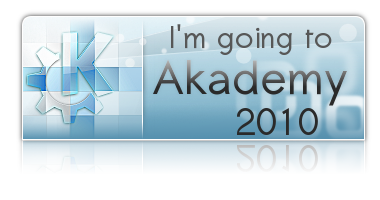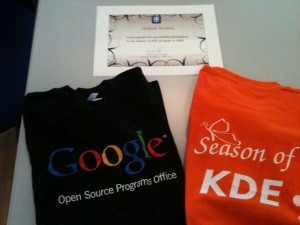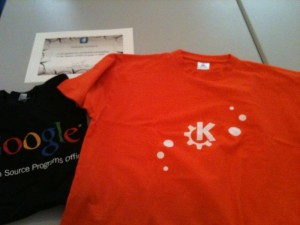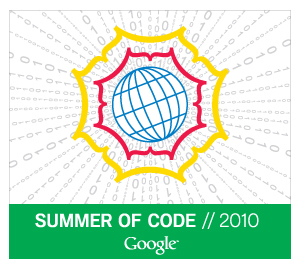(This is a guest post by Asheesh Laroia of OpenHatch, an “open source involvement engine.” OpenHatch is a website and ongoing project to help new contributors find their place in free software projects. A few months ago, he imported some bugs in KDE’s bug tracker into the OpenHatch volunteer opportunity finder. I invited him to write about it for my blog. OpenHatch has its own blog, too.)
KDE is doing something wonderful with its Junior Jobs. These are issues (often small feature requests) that are appropriate for a first-time contributor. When maintainers create these opportunities, they take information that would otherwise be trapped in their head — how easy or hard an issue is — and make it available as hint to new contributors. Conveniently, creating a “Junior Job” doesn’t take any special work: maintainers just have to find the relevant bug in KDE Bugzilla and add the junior-jobs keyword.
But KDE Bugzilla isn’t necessarily a friendly welcome mat. Probably everyone reading this post can remember a time when Bugzilla seemed like a difficult, arcane tool. Bugzilla works well (enough) as an interface for project maintainers to share the status of what they’re working on with each other.
But imagine you are a prospective contributor. Aim your web browser at the list of junior jobs. (To get that link, I went to KDE Bugzilla and clicked the “Junior Jobs” link on the left side.) This is what I saw when writing this post:

Here are some questions I might have as a new contributor (and some commentary as myself):
- What do “wis” and “UNCO” mean?
- Who is JJ? (Maybe that’s a person’s initials; maybe he or she plans to fix it.)
- What project are these bugs in? (I can guess from the assignee….)
- Where do I get the source code? (The wrong answer might lead the new contributor to submit a patch against the most recent release; that patch might not apply against trunk.)
- If I get started on this, who can help me when I get stuck? (Otherwise, a new contributor might make an effort, become confused by something, and fall away.)
I like to joke that bug trackers say lots of information about what the problem is, but they don’t provide any information on how to solve it.
We at OpenHatch noticed that a great number of projects were in a similar situation: they label bugs as “easy”, “bitesize”, or “Junior Jobs” and point first-time contributors straight at the bug tracker. So we created what we call the volunteer opportunity finder to help people find something to work on. It wakes up late at night to download issues from bug trackers representing hundreds of projects. (Since OpenHatch is itself a free software project, we also import the bitesize bugs from our own bug tracker.)
When you browse the available issues, you can click on the project name and see its page on OpenHatch. (We make one for every project that someone says they’ve contributed to, or where we’ve imported bugs for it.) The pages showcase the people who have listed themselves as possible mentors. Contributors can also write instructions or suggestions for how to get involved; for example, the page for Gally does a great job of answering “Other than writing code, how can I contribute?”
If you don’t know how to get involved, you can also browse opportunities by programming language, the kind of help you want to give (such as writing documentation) or flip through a few projects you might want to work on. You can narrow your search to just the ones we call “bitesize” (“Junior Jobs” in KDE, bugs labeled as “easy” in the Python programming language, and so forth).
So OpenHatch is a project to think through how people join free software communities and to build technical tools and social structures to make that better. This browsing tool is one thing we’ve built. It’s a community project, so you can help out! Say hi on IRC or email if you want to join in.
I’d like to hear (in the comments on this post) from you guys and gals: What do you think about our “volunteer opportunity finder”? What works about it for you? What would you change?
If Lydia invites me back, I plan to write about getting non-coders more involved in free software projects. During the weekend I first met Lydia and Jeff Mitchell of Amarok, I had a crazy idea for something you can build on top of OpenHatch. If you want to stay in touch until then, join our IRC channel or subscribe to us on Identi.ca/Twitter/RSS!







